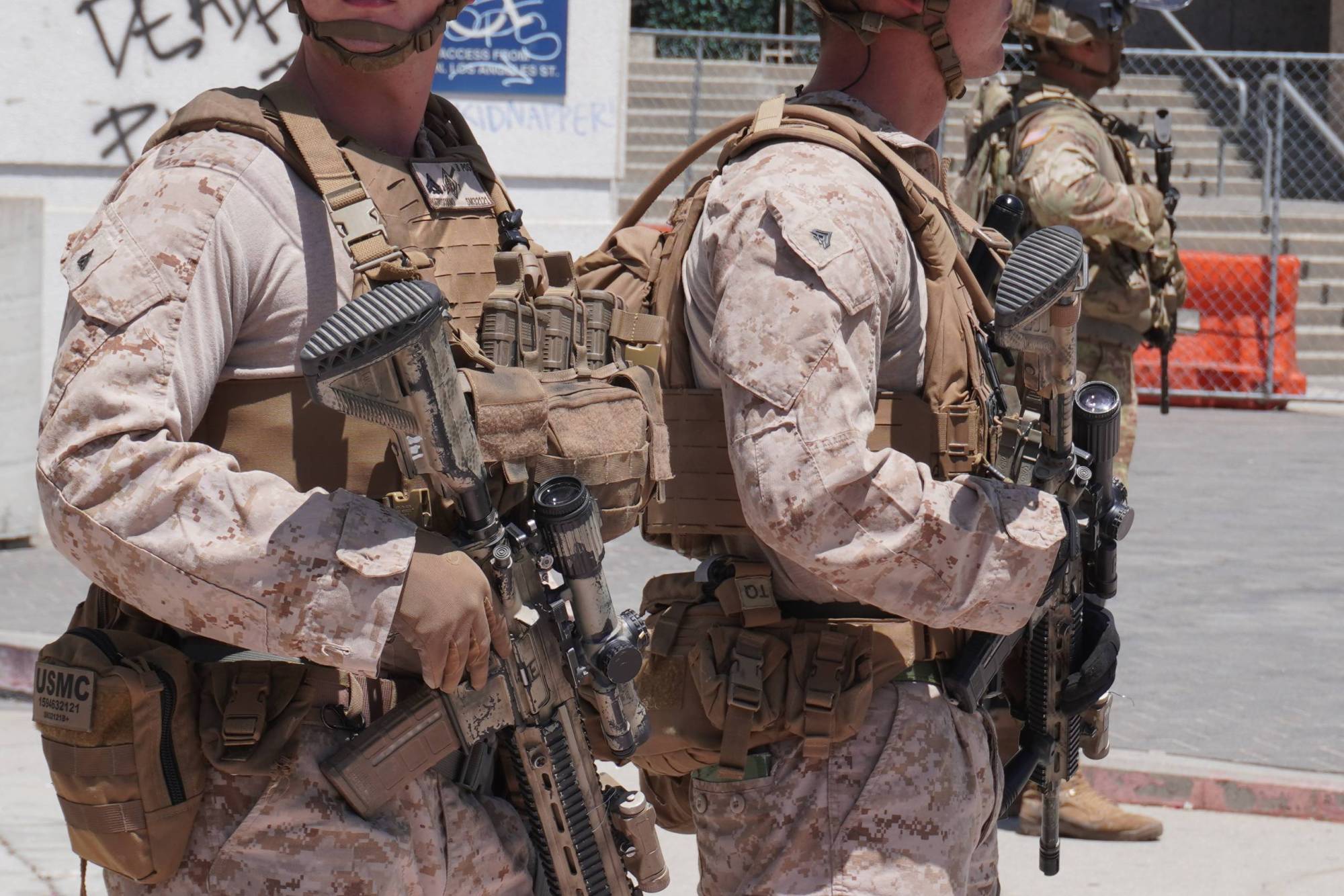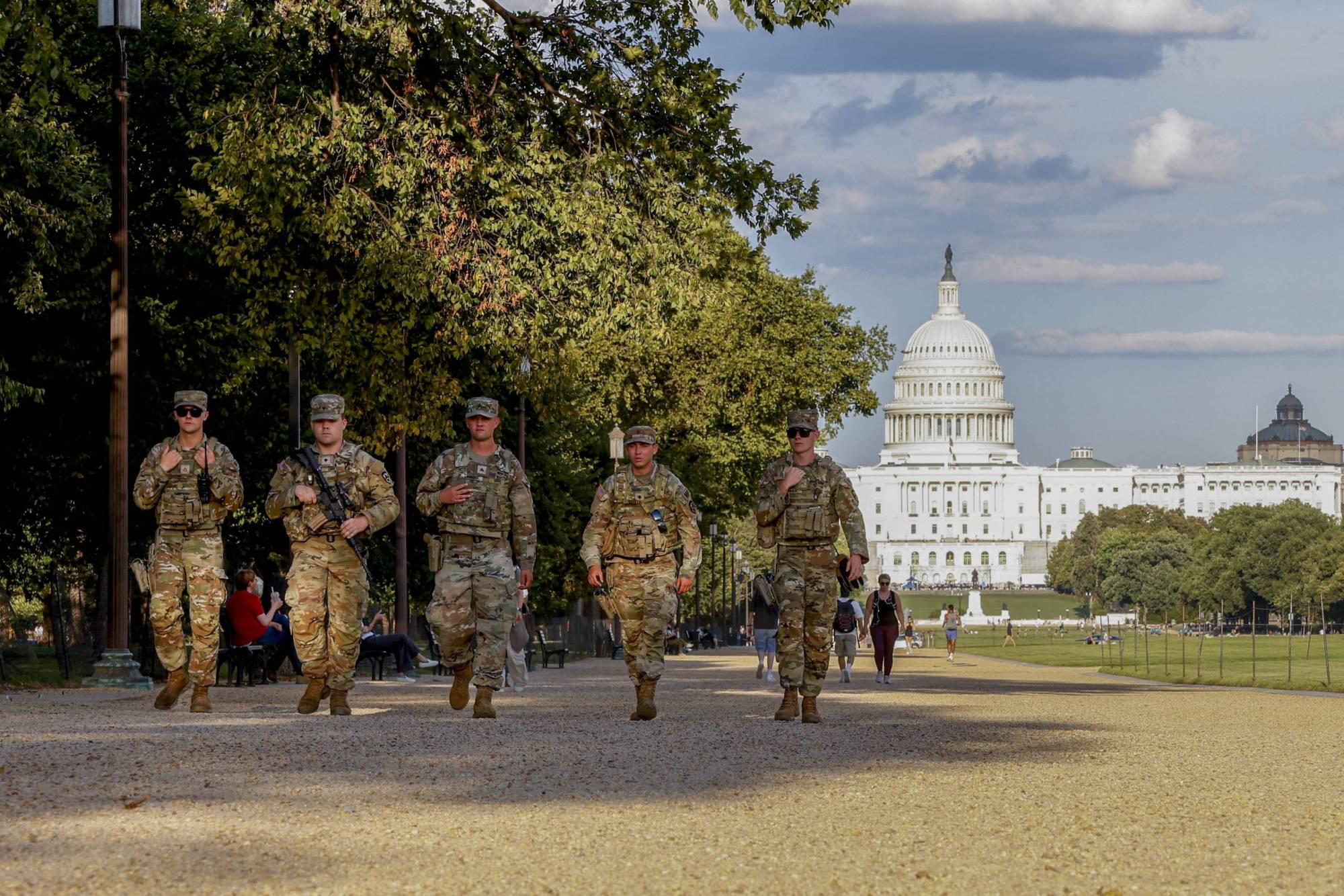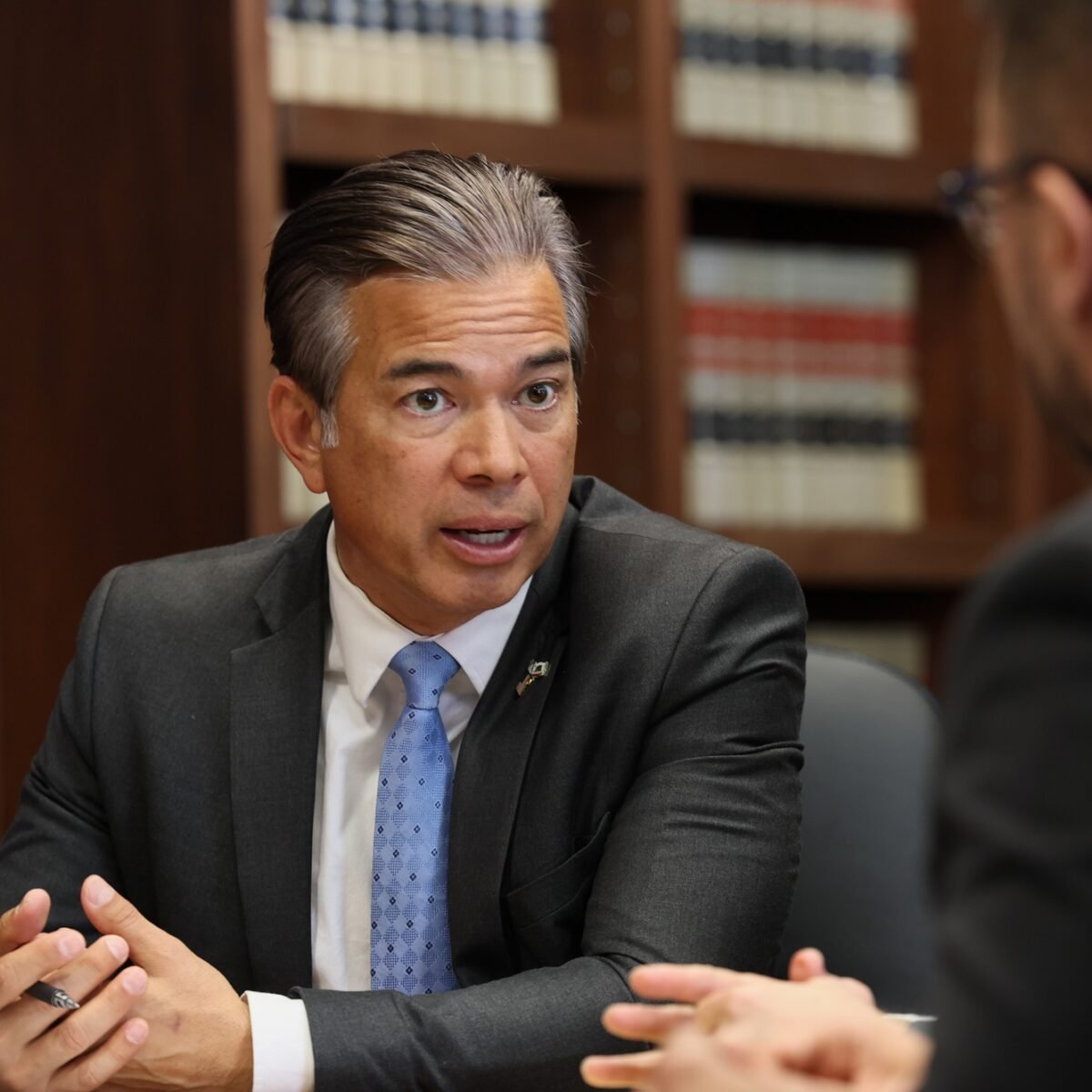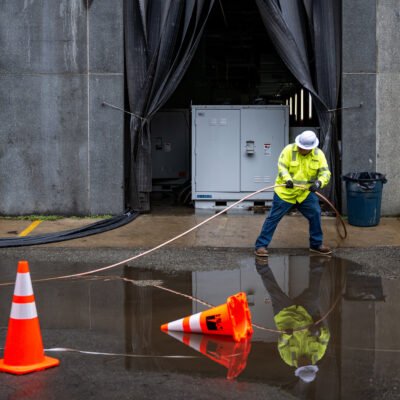She set a hearing in the case for Oct. 29.
The president’s rationale for the deployments is not entirely consistent. He often talks about crime problems and lawlessness in Democratic-led cities, including calling Portland “war-ravaged.” Last week, he told a gathering of top military brass that he wants to use American cities as “training grounds” for the military.
But in other public statements and in court filings, the administration has argued that the troops need to be sent to Portland to protect an Immigration and Customs Enforcement office from ongoing protests. In general, the Trump administration has argued that protests outside ICE facilities — and in some cases, in communities where immigration enforcement actions are taking place — are preventing the president from enforcing immigration law, though judges have found little evidence to support such claims.
“With all due respect to that judge, I think her opinion is untethered in reality and in the law,” White House spokeswoman Karoline Leavitt said Monday, adding that the president “has the right to call up the National Guard in cases where he deems it’s appropriate.”
“And if you look at what has happened in Portland, Oregon, for more than 100 nights — I was talking to our law enforcement team about it this morning — for more than 100 days, night after night after night, the ICE facility has been really under siege by these anarchists outside. They have been disrespecting law enforcement. They’ve been inciting violence,” she said.

While there have been some fights and other instances of violence at protests, local officials say the situation is well within their control, and some protesters worry that federal agents are the ones escalating the situation.
Loyola Law School professor Jessica Levinson said that while there are multiple legal cases pending in numerous states, they all have one central question in common: How much power does Trump have to federalize a state’s National Guard?
“We know that the statute is a pretty broad grant of authority from Congress to the president, to federalize the National Guard under certain circumstances, like there’s an invasion or the possibility of a rebellion— and this is where a lot of litigation is — the president is unable through the regular forces to execute federal law,” Levinson said.
But despite the similarities, Levinson said it’s likely that for now all these lawsuits will continue on separate tracks.

“It essentially can’t be decided nationwide in the sense that I think the question of whether or not a president has the power to federalize the National Guard fundamentally depends on the facts on the ground in a specific jurisdiction,” she said.
Bonta said California’s position is that the president lacks authority to seize control of the National Guard from state governors or use the military to police civilians. He also criticized Trump’s rhetoric on crime as inconsistent with his efforts to cut billions of dollars in federal law enforcement and victims’ services funding from states that have policies he disagrees with..
“It’s an outrageous gap and delta and distance between what Trump says he stands for and what he purports to be. He wants to be a pro-public safety president, a tough-on-crime president,” Bonta said. “His actions completely undermine that image that he’s trying to present to the people.”
Bonta noted Trump’s pardons of Jan. 6 rioters as well as his moves to strip money from programs that help victims of domestic violence, seek to reduce violent street crime, and help communities prepare for natural disasters and terror attacks.





